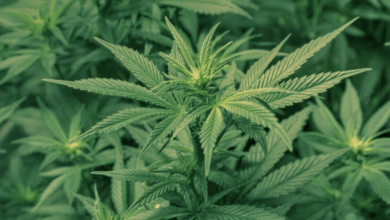Can Cbd Oil Make You Sleepy

The relationship between CBD oil and sleepiness is complex and varies among individuals. While some users experience enhanced relaxation and improved sleep quality, others may not notice significant effects. Factors such as dosage, timing, and personal biology play crucial roles in how CBD influences sleep patterns. Understanding these nuances can shed light on whether CBD oil is an effective solution for sleep issues, prompting further exploration into its potential benefits and mechanisms.
Understanding CBD and Its Mechanism of Action
How does cannabidiol (CBD) interact with the body to potentially influence sleep?
CBD engages with the endocannabinoid system, promoting balance and homeostasis. This cannabinoid interaction may modulate anxiety and stress, critical factors affecting sleep quality.
Research indicates various CBD benefits, such as reduced insomnia symptoms and improved overall well-being, highlighting its potential role in enhancing restful sleep without the psychoactive effects of THC.
The Connection Between CBD and Sleep
The relationship between CBD and sleep is gaining attention as more individuals seek natural alternatives for sleep disturbances.
Research indicates that CBD effects may influence sleep cycles, potentially promoting relaxation and reducing anxiety.
Research Findings on CBD Oil and Sleep Quality
While many individuals report improvements in sleep quality after using CBD oil, scientific research provides a mixed but promising landscape.
Sleep studies indicate that CBD oil benefits may include reduced anxiety and improved overall sleep patterns, though results can vary significantly.
Some research highlights its potential to enhance sleep duration, while others call for more extensive investigation to establish definitive conclusions.
How to Use CBD Oil for Sleep Issues
Individuals looking to address sleep issues with CBD oil should consider several factors to optimize its effectiveness.
Dosage recommendations vary; starting low and adjusting as needed is advisable. Common application methods include tinctures, capsules, or topical creams.
Each method affects absorption rates, impacting efficacy. Consistency in use, alongside monitoring individual responses, can enhance results for improved sleep quality.
Conclusion
In summary, while CBD oil may offer potential benefits for sleep, the experience varies significantly among individuals. Is it a miracle solution or just another trend? Current research indicates that CBD could help alleviate anxiety and improve sleep quality, but further investigation is essential to fully understand its effects. Users should approach CBD with caution, considering dosage and timing, to discover what works best for their unique sleep challenges.






